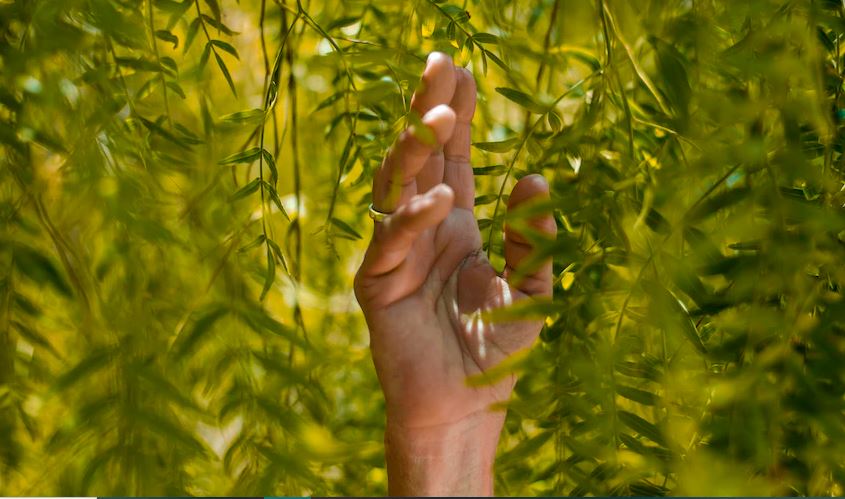Sustainable living: green habits to adopt in your daily life
An ever-growing number of members of the general public are becoming interested in sustainability and what they could do to lower their carbon footprint and help the planet. The situation is becoming critical, as the world has recorded record temperatures in 2023, with extreme heat waves, wildfires and floods. The natural El Niño phenomenon is also thought to be affected by global warming. While the interaction between the two is not yet fully understood, most experts believe that a mix between the two is more likely to result in extreme weather events.
Given these alarming patterns, most people agree that urgent climate action is necessary. But what exactly are some of the things that you can actually do to help the environment?

Save water
According to research, the average American family uses approximately 300 gallons of water daily. And this just accounts for household use. About 30% of this amount goes into outdoor use, such as residential landscape irrigation. As the effects of climate change become more extreme, droughts become more common worldwide, creating food insecurity for millions of people living in developing and emerging economies.
When you save water, you ensure the environment remains healthy, and water sources aren’t depleted. It is also good for your water bill, as consuming less means paying less. The costs necessary for wastewater treatments and the energy used to treat and heat water will also be minimized. It’s important to avoid tossing anything potentially toxic or hazardous in your home drain to avoid polluting local water.
There are several ways you can save water. Reducing the time you spend showering and installing water-saving appliances are some of the simplest, most straightforward methods. When you need to do laundry or wash the dishes, make sure to have full loads to use the same amount of water for a larger number of items. Choose tap water over bottled as much as you can since plastic manufacturing involves massive water use, but there’s also the issue of plastics, one of the most harmful materials in the world.
Reduce and reuse
Excessive consumerism causes the depletion of resources, especially since most of the items created end up in landfills instead of being recycled. And while there are many sustainable shopping options out there, the truth is that the greenest thing you could do is reduce the number of items you buy and reuse the things you already have. Many people purchase new things even when they don’t need them. Many of these goods end up completely unused until they are discarded due to cluttering.
Clothes are one of the most common items that are purchased and then neglected. Studies indicate that a sizable percentage of clothing remains unworn and unloved. This is why many people are encouraged to wear the garments in their wardrobes and rediscover all the pieces they own before shopping for anything new. It’s also important to focus on sustainable materials. But clothes aren’t the only items that use the material.
Seeded paper is becoming increasingly popular. There’s a large variety of options, including flower and tree seeds, all of which have different decorative effects. The thickness, colors and patterns are different as well. The process is sustainable, focusing on waste reduction, especially as most of the paper is made-to-order, avoiding surplus.
And, of course, there’s also the issue of bags. Many people carry a bag every day, either to hold their belongings or to be used when grocery shopping. But also, getting a bag anytime you go to the store creates a lot of unnecessary plastic waste. Go to https://www.greengiving.eu/ to discover a wide selection of Fairtrade cotton bags in various sizes. However, you must be ready to reuse them. Research shows that each bag should be used at least one hundred times before it is more sustainable than single-use plastics.
The average cotton bag requires the same amount of energy as twenty-eight plastic bags, meaning that you harm the environment by not using it. Even if a product is designated as sustainable, you can’t simply discard it. Its negative impact will be the same, so using the things you buy is important.
Green eating
Within the food industry, sustainability is a far-reaching and multifaceted subject. There are several things that you should do if you want to be eco-friendly about the food you purchase and eat. Some of the things you should keep in mind include:
- Avoid waste: Just as in the case of clothes and other items you use, make sure to only buy as much food as you know you’ll eat. Food waste is a considerable contributor to temperature increases, making up for around 10% of global greenhouse emissions. Moreover, it is unethical to throw away food, considering that so many people worldwide struggle with the effects of hunger. To avoid throwing things away, you can come up with new recipes that include leftovers or ingredients you may not have tried before.
- Go plant-based: While becoming vegan isn’t feasible for everybody, most climate researchers and environmentalists agree that animal agriculture has a significant effect on climate change. Switching your diet to incorporate more plant-based options instead of animal products could help.
- Seasonality: Eating produce when that is in season is better for you and the environment as it’s likely there were fewer chemicals and pesticides used during the growing process. A lot of fruits and vegetables are artificially ripened, many substances being potentially hazardous.
- Locally-made: Sustainability places a lot of importance on products that are made locally. When you choose foods produced in your country or region, you buy a greener product that doesn’t have to travel hundreds of miles to end up on your plate. That means less fuel and energy went into making your food. Moreover, you get to support the farmers, your local community and the economy.
Living sustainably starts with many small choices you make every day. But each and every single one of them adds up. And if enough people choose a more sustainable way of life, carbon footprints will be reduced, and the environment will also be better off.




